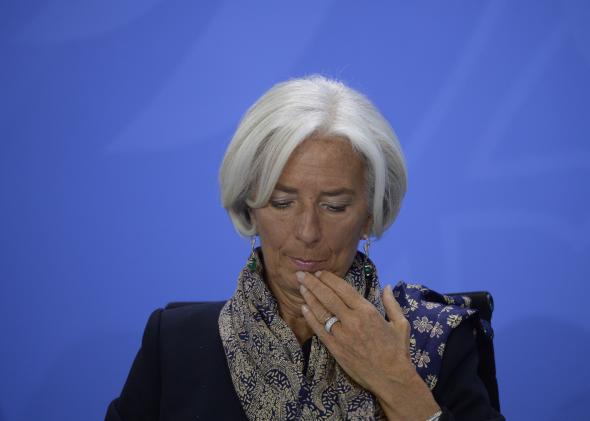The year that I graduated from college, our university’s president—who had gained a reputation as a self-aggrandizing operator singlehandedly responsible for skyrocketing our tuition costs (and rewarding himself with the largest salary of any college president)—announced his retirement. Then, he announced that he would be delivering the commencement address at that year’s graduation ceremony. Seniors balked. Choosing himself as our commencement speaker was the ultimate expression of his egotistical reign, these students claimed. That was, at least, the public story. But privately, many students were actually outraged by the fact that they had paid a lot of money to go to this school, and that it had failed to reward them with a spectacular final show. In response to student protests, the school added Wolf Blitzer to the bill.
I don’t remember a word that either of the men said, but I left feeling that the lineup was the perfect summation of my college career—a leader with an inflated sense of his own importance, carting in a nominally famous person to paint a thin film of fanciness onto our degrees, then converting our tuition checks into personal wealth. So I’m admittedly a bit cynical about the commencement speaker controversies that are sweeping the nation this spring. International Monetary Fund chief Christine Lagarde withdrew from Smith College’s commencement ceremony after protests from students over the IMF’s meddling approach to foreign aid. Condoleezza Rice, tapped to deliver the commencement address at Rutgers University, stepped down after criticism coalesced around her role in the Iraq War. And Brandeis University cancelled plans to award American Enterprise Institute fellow Ayaan Hirsi Ali an honorary degree at commencement after students raised concerns about statements she’s made that are critical of Islam.*
These student protests are couched in the language of political opposition, but they highlight a deeper flaw in the value proposition that elite colleges sell to their students. At these schools, outsized tuition fees are justified not only by the quality of the education but also by campus connections to the famous and powerful. (When I went off to college, a high school friend boasted that Maya Angelou would be speaking at his Ivy’s orientation.) But valorizing the famous and powerful—even the ones whose political views you agree with—is a morally bankrupt exercise that stands in contrast to the democratic values that these liberal institutions purport to uphold. These commencement speakers are being tapped for the value of their stature, not their ideas. Smith president Kathleen McCartney recognized this when she expressed disappointment at the student protests that had sidelined her commencement speaker: “An invitation to speak at a commencement is not an endorsement of all views or policies of an individual or the institution she or he leads,” she wrote. “Such a test would preclude virtually anyone in public office or position of influence.”
When Smith announced that former president Ruth Simmons would be replacing Lagarde as commencement speaker, some students claimed that the choice of Simmons was equally offensive (when she was president of Smith College in the run up to the financial crisis, Simmons also served on the board of Goldman Sachs). But others expressed disappointment that their commencement had been downgraded to “forgettable.” It’s hard to have it both ways, kids! These recent flare-ups reveal less about the speakers than the students’ own entitlement—students who believe they have paid for the right to a commencement experience that perfectly reflects both the stature and the political values of their elite higher educations. They want their commencements to be both high in profile and rich in personal meaning. That’s not just political correctness gone awry; that’s a bunch of 22-year-olds thinking they are owed exactly the experience they want. On the other hand: A uniquely tailored experience is just what elite schools are promising their students in exchange for their astronomical costs.
* Correction, May 21, 2014: This post originally misstated activist Ayaan Hirsi Ali’s planned role in the Brandeis commencement ceremony; she was scheduled to receive an honorary degree, not deliver a commencement address.
